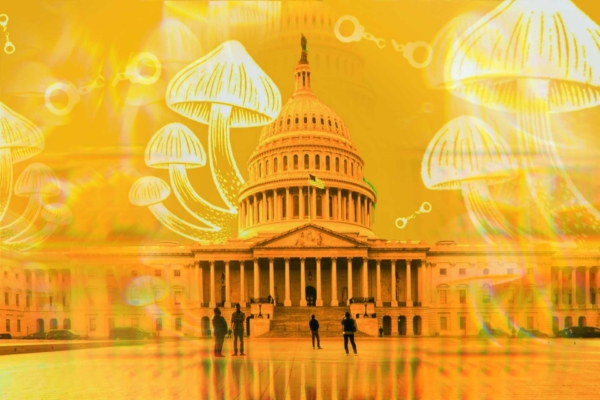
San Francisco became the latest U.S. city to decriminalize entheogens when the city Board of Supervisors voted unanimously to approve a resolution making entheogenic plants the “lowest priority” for city law enforcement resources. Sponsored by Supervisors Dean Preston (D) and Hillary Ronen (D), the resolution is the latest victory for Decriminalize Nature, a group that has influenced similar resolutions in Oakland, Denver, D.C., Seattle, Detroit, and about a dozen other cities and counties across the country.
The San Francisco resolution references SB 519, the California bill forwarded by Sen. Scott Wiener (D) and later abandoned after the initial bill was gutted in committee. SB 519 called for the decriminalization of “possession of up to two grams of N, N-dimethyltryptamine (DMT); 15 grams of ibogaine; 0.01 grams of Lysergic acid diethylamide (LSD); 2 grams of psilocybin; 2 grams of psilocin; and 4 grams of 3,4-methylenedioxy-methamphetamine (MDMA) and there would be no penalties or fines for possession below those the limits for people over 21.”
Although the Decriminalize Nature resolution references SB 519, it does not include LSD and MDMA in it’s final recommendations. It does refer to the historical use of iboga, psilocybin mushrooms, ayahuasca, and mescaline-containing cacti as evidence of these plants’ beneficial and therapeutic value, including passages related to mescaline and peyote: “WHEREAS, Entheogenic cacti that contain phenethylamine compounds such as mescaline can be beneficial in healing drug and alcohol addiction and for individual spiritual growth, and have been utilized in sacred initiation and community healing by diverse religious and cultural traditions for millennia and continuing use as religious sacraments in modern times.”
The resolution’s primary target is “the decriminalization of all Entheogenic Plants and plant–based compounds that are listed on the Federal Controlled Substances Schedule 1,” and calls on federal and local law enforcement agencies to to consider these substances the lowest priority, and “urges that City resources not be used for any investigation, detention, arrest, or prosecution arising out of alleged violations of state and federal law regarding the use of Entheogenic Plants.” The resolution also calls for the Clerk of the Board to “transmit a copy of this Resolution to the Police Department, the Sheriff’s Department, the District Attorney’s Office, Senator Scott Wiener, Assembly members Matt Haney and Phil Ting, Speaker of the House Nancy Pelosi, United States Senators Dianne Feinstein and Alex Padilla, and Governor Gavin Newsom.”
Since this resolution covers all entheogenic plants and substances listed in the Federal Controlled Substances Schedule 1, that presumably also includes peyote and mescaline. Decriminalize Nature has recently come under fire for including peyote in its decriminalization efforts against the express wishes of the Native American Church (NAC) and other indigenous groups who have been granted an exemption to gather and use peyote for religious ceremony. Since the wild supply of peyote has been dangerously over-harvested, the NAC has repeatedly requested that Decriminalize Nature campaigns exclude peyote from the local lobbying efforts to preserve the limited supply. Many local decrim movements, as well as the original language in SB 519, have honored this request, but Decriminalize Nature’s co-founder, Carlos Plazola, is adamant that peyote be decriminalized for Mexican nationals with a history of peyote use but who may have no affiliation with the NAC or other indigenous groups. This most recent decriminaliztion resolution completely ignores the concerns of the NAC.
Because the powers that be refuse to act at the federal level, these local resolutions appear to be the only pathway towards legitimizing the use of plant psychedelics for the time being, even if that means the laws will be uneven and exclusionary for people who do not live in privileged cities. Even now, some counties in Oregon are pushing back against a state-wide effort to roll out a decriminalized psilocybin mushroom program; corporate psychedelic companies still strongly oppose decriminalization; and states like Indiana are still trying to imprison moms and nurses for the high crime of microdosing to treat depression. This latest San Francisco resolution is a welcome step along the road to total decriminalization, but we still have a long way to go.





